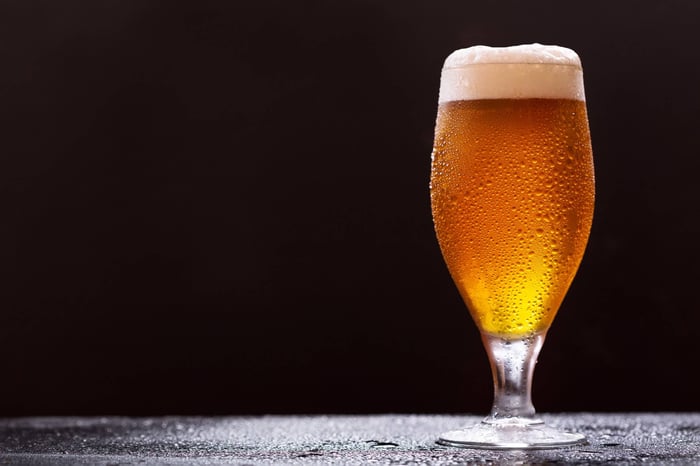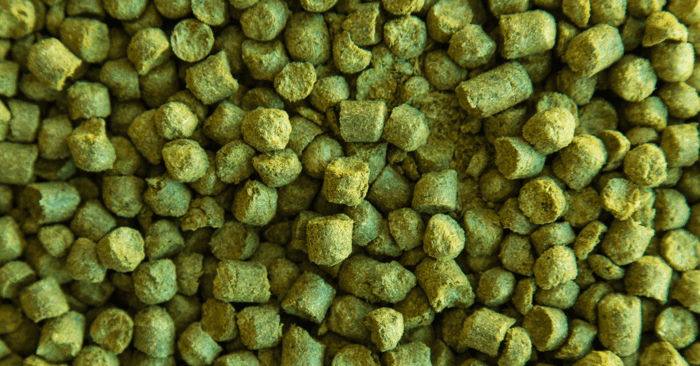Every great brewing story has humble beginnings, and Jon Martin's journey from family tales to competition medals is one that'll resonate with Kiwi brewers everywhere. His Marfly Brewing Co. setup isn't just impressive – it's the result of careful planning, smart equipment choices, and that uniquely New Zealand approach to getting things done properly.
We sat down with Jon to understand how he built his award-winning home brewery and what lessons other brewers can take from his experience. Spoiler alert: it involves more planning than you might expect and some seriously clever kit choices.
Q&A: Building a Competition-Winning Brewery
Tell us about your brewing origins – what sparked this passion?
Jon's story begins with his grandfather's brief but memorable encounter with beer making. After bottles exploded during the night in 1978, his grandfather's brewing career ended rather abruptly. Years later, reading about brewing brought those family stories flooding back.
"I decided to try making beer for myself, thinking that maybe I could redeem my grandfather's efforts in beer making," Jon explains. There's something beautifully determined about that motivation – turning family brewing disasters into competition success.
The name Marfly Brewing Company honours the Martin family tradition. "Everything I do in life is always related to my family," Jon shares, reflecting that community spirit that drives many Kiwi brewers.
What drove you to build such an elaborate setup?
Jon's competitive nature demanded consistency above all else. "I wanted a system that would allow me to consistently make any style of beer, over and over with little to no differences in taste," he tells us.
The planning phase took two full years of research and comparison shopping. After evaluating every system available, Jon kept returning to one choice: the G30. That's the sort of thorough decision-making that leads to long-term satisfaction with your kit.
Walk us through your typical brew day routine.
Jon's approach is methodical and designed to eliminate variables:
Pre-Brew Checklist:
- Verify R.O. water tank levels match recipe requirements
- Pre-measure and organise all brewing additives
- Manage yeast starter preparation (3-5 days advance)
Brew Day Schedule (9 AM sharp):
- Transfer yeast starter to fridge for cooling
- Connect iPad to Grainfather controller for recipe management
- Conduct equipment diagnostics (pump and heater testing)
- Execute recipe programming with precision timing
Fermentation Setup:
- Complete wort cooling using system chilling
- Transfer to Conical Fermenter for temperature control
- Temperature-match yeast preparation to wort
- Implement proper oxygenation before yeast pitching
Jon's equipment wisdom resonates: "It's better to find a pump that needs attention before you have hot water in the kettle." Prevention beats crisis management every time.
What batch sizes work best for you?
Jon maintains consistent 19-litre batches, finding this the sweet spot for his system. "Anything smaller is too hard to regulate temperature and additives. Anything larger and it gets too close to the maximum capacity of the Grainfather," he explains.
His honesty about early failures is refreshing – his first three batches were "horrible." Every accomplished brewer has those learning experiences that become the foundation for future success.
Do you focus on specific beer styles?
Rather than cloning commercial beers, Jon focuses on mastering traditional styles. "I like to make a style of beer, not necessarily a clone of a commercial beer," he explains. His favourite? Saison – "It's the one beer that is easy to make, and all of my friends seem to enjoy."
There's wisdom in choosing styles that bring people together around your table.
The Power of Brewing Community
Jon never brews alone, understanding that brewing knowledge multiplies when shared. "It doesn't matter if the brewer has more or less experience than you. You will always learn something from the conversations you have," he observes.
His mentor Chris Humble represents the kind of knowledge sharing that strengthens the entire brewing community. Jon credits Chris as fundamental to his brewing improvements, acknowledging the questions answered "multiple times" with endless patience.
The Red Rice Brew Krewe exemplifies how local brewing groups become extended families. Jon's advice is practical: find a local group or create one. The learning that happens over shared brews is invaluable.
Design Principles for Your Home Brewery
Planning your own brewing sanctuary? Jon's systematic approach prevents expensive mistakes:
Phase 1: Accurate space measurement and documentation Phase 2: Complete equipment specification with dimensions Phase 3: Multiple design iterations on paper Phase 4: Peer consultation with experienced brewers Phase 5: Continuous refinement until optimal layout achieved
"You will need to make several drawings before you get a good working idea of what will work for the space you have," Jon advises. The planning investment pays dividends in functionality and efficiency.
Competition Success and Future Vision
Jon's brewing highlight remains his Munich Dunkle – first in category and third best of show. That achievement validates years of systematic improvement and attention to detail.
His ultimate ambition? "First Place Best of Show" – the kind of goal that drives continuous learning. With his complete Grainfather system, Jon believes brewing possibilities are endless.
Post-retirement dreams include operating a beer garden featuring his creations alongside other local brewers – a vision that captures the collaborative spirit of New Zealand's brewing community.
Essential Brewing Wisdom
Jon's ideal pairing combines Porter House steak with cold Saison – a combination that demonstrates understanding of how great beer enhances good food.
His final advice strikes at the heart of brewing improvement: "No matter what level of experience you have in brewing, place your beer in a competition. The lessons you will learn from a seasoned judge are endless."
Competition participation accelerates learning through expert evaluation. Whether you're bottling your first batch or refining decades of experience, competitions provide insights impossible to gain otherwise.
Jon's transformation from explosive family stories to medal-winning excellence demonstrates what's achievable with proper planning, quality equipment, and commitment to continuous improvement.
Grainfather Team









